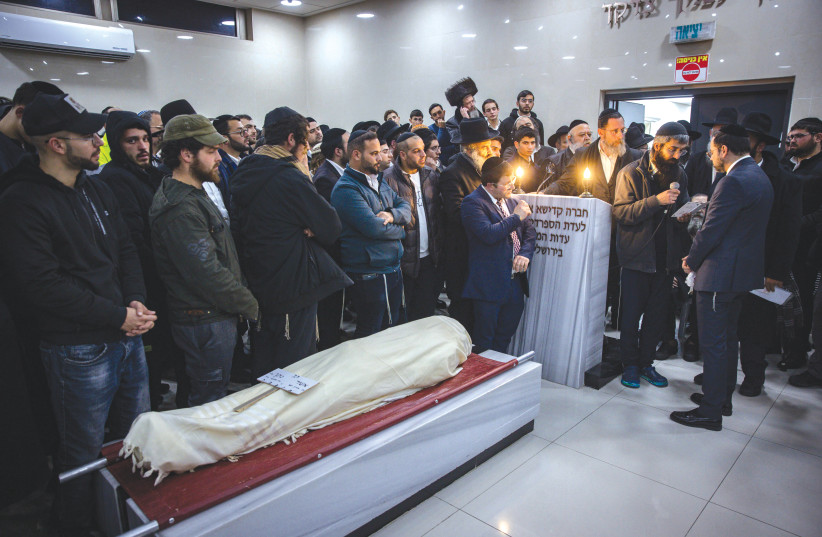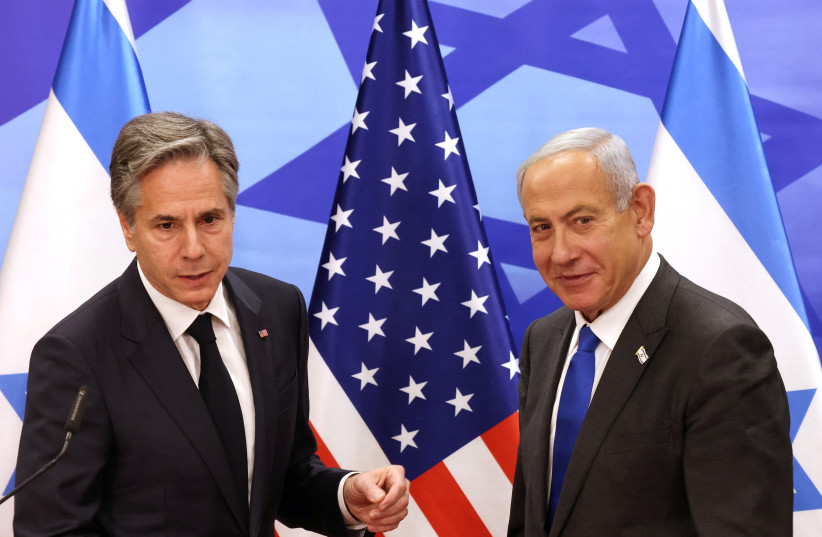US Secretary of State Antony Blinken doubled down on the importance of an Israeli judicial overhaul that involved a consensus process, so as to ensure that Israel’s democracy remains intact in the process.
“With regard to the proposed reforms, there is clearly a very vibrant debate that is going on,” Blinken told reporters in Jerusalem as he wrapped up his two-day trip.
It was his first visit to Israel since Prime Minister Benjamin Netanyahu’s new government was sworn in last month. He arrived amid growing concern in Washington and among Israel’s western allies that Netanyahu’s plan for judicial overhaul would weaken Israeli democracy.
Until his visit, US officials have been careful in their statements about the process, underscoring the importance of democracy without commenting on the debate.
Breaking the neutral stance
Blinken appeared to break that neutral stance during his trip by speaking of a consensus process, thereby picking up on a proposal to remove judicial overhaul from right-wing politics by having Israeli President Isaac Herzog lead a non-partisan committee to reform Israel’s court system.
He first raised the point with Netanyahu at a joint press conference between the two of them on Monday and then raised it again more clearly when he met with Herzog.
Blinken spoke of it for a third time on Tuesday, noting that as a democracy one of the things America recognizes is that “building consensus on new proposals is the best way to ensure not make sure not only that they are embraced but that they endure.”
He acknowledged that this was a internal debate in Israel, stating that the issue was for “Israelis themselves to work out.”
But, he said, “we look forward to working with Israel to advance the interests and values that have been at the heart of this relationship for 75 years."
KAN News pushed back at Blinken at the press conference noting that a number of politicians have bristled at his words stating that Israel doesn’t need a lesson in democracy from the US.
Blinken, however, did not back down, noting that he was referencing the shared value of democracy, “nothing more and nothing less than that. I continue to be inspired by the vibrancy by which Israel shares those values.”
Timing is key
The Secretary of State arrived in Israel in the aftermath of two terror attacks, including one in a synagogue that claimed seven lives and in the aftermath of an IDF raid on Jenin to root out terrorists in which seven Palestinian gunmen and two civilians were killed.

Israel is also expected to present to the High Court of Justice on Wednesday its policy with regard to the possible demotion of the illegal Bedouin West Bank heading village of Khan al-Ahmar.
It’s a list of policies that are expected to clash with the Biden administration, which has sought to preserve the option of a two-state solution.
During his press conferences with Netanyahu and Palestinian Authority President Mahmoud Abbas, Blinken urged both Israelis and Palestinians to take steps to defuse tensions.
When asked about settlement expansion in particular during a conversation with reporters in Jerusalem on Tuesday, he said, “we have been clear and consistent that neither side should take any unilateral actions that would add fuel to the fire.”
Blinken said the US would oppose anything that harmed the implementation of a two-state solution. This included “settlement expansion, legalization of illegal outposts, moves toward annexation of the West Bank, disruption of the historic status quo at Jerusalem’s holy sites, demolition and evictions and incitement and acquiesce to violence,” he said.
“I repeated that in my meetings throughout my stay here, we look to both sides not to take steps that make things worse and to take positive steps that could create a better path forward,” he said.
Both Israelis and Palestinians need to find a way to work together to find a path forward, Blinken said, adding that a team of US officials would remain on the ground to help break the current violent impasse.
In Jerusalem, he condemned the terror attacks and in Ramallah Blinken expressed his condolences for the "innocent Palestinian civilians who’ve lost their lives in escalating violence over the last year."
"What we’re seeing now from Palestinians is a shrinking horizon of hope, not an expanding one; and that, too, we believe needs to change," he said.
He pledge of an additional $50 million to UNRWA, this brings the total US support for Palestinians both through UNRWA and other venues to $940 million over the last two years, he said.
"We reached an agreement as well to provide 4G communications to Palestinians, and we’re working to implement that," he said.
Blinken also promised to continue work to reopen the US Consulate General in Jerusalem, which had acted as a de-facto embassy to the Palestinian Authority. Former US President Donald Trump had closed the consulate, and the US needs Israeli permission to re-open it.
"All of these steps are part of the longer-term ambition to re-establish, but then not just re-establish, rebuild our relationship, as I said, with the Palestinian people and with the Palestinian Authority," he said.

